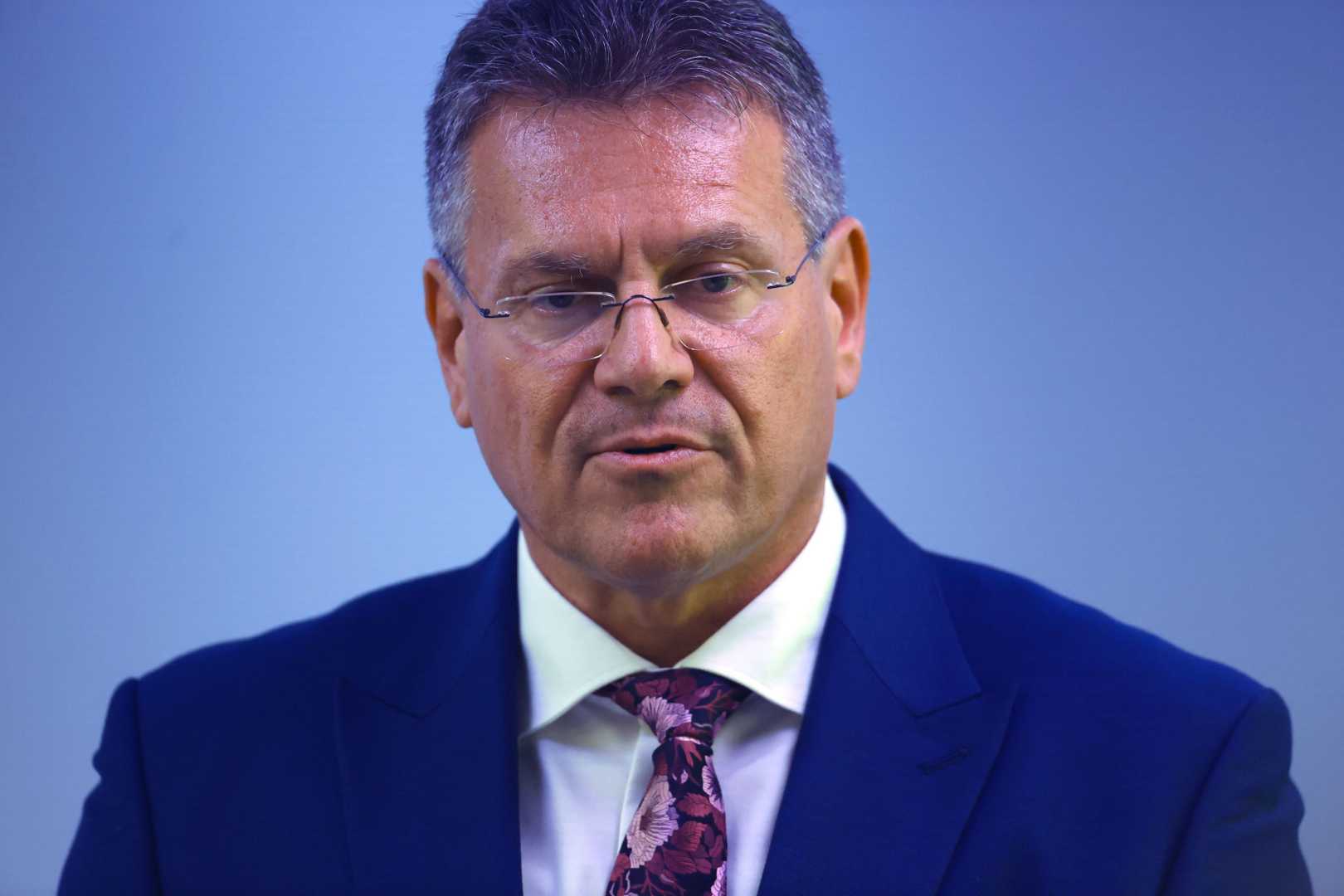World
UK Faces Pressure to Join EU Trade Pact Amid Post-Brexit Reset

DAVOS, Switzerland — The United Kingdom is under growing pressure to join a pan-European trade pact as part of a post-Brexit reset, according to one of the European Union’s top trade officials. Maros Sefcovic, who led post-Brexit negotiations for the EU, suggested the UK could benefit from joining the Pan-European Mediterranean (PEM) agreement, which facilitates tariff-free trade across Europe and parts of North Africa and the Levant.
The PEM agreement, which includes 24 countries, has been touted as a way to simplify trade and maintain complex supply chains. However, the UK’s previous Conservative government opted not to pursue membership as part of its post-Brexit trade strategy. Speaking to the BBC at the World Economic Forum in Davos, Sefcovic said the idea of UK participation had not been “precisely formulated” but emphasized that the “ball is in the UK’s court.”
The UK government has reportedly begun consulting businesses on the potential benefits of joining the PEM, which could reduce trade barriers and streamline exports. However, hours after Sefcovic’s comments, UK Housing Minister Matthew Pennycook rejected the proposal, stating that the government is “not seeking to participate in that particular arrangement.”
Pennycook added that while the UK aims for closer ties with the EU, particularly in security and defense, the PEM is not currently on the table. This stance has drawn criticism from opposition parties and business groups. Liberal Democrat leader Sir Ed Davey called the rejection an act of “economic negligence,” urging the government to reconsider. “If the Government thinks it will get growth back in the economy by borrowing Boris Johnson’s playbook on European negotiations, it is going to end up being sorely disappointed,” Davey said.
Dr. Mike Galsworthy, chairman of the European Movement UK, echoed these sentiments, arguing that joining the PEM or even the EU customs union would ease trade barriers and boost the UK economy. “With growth stalled and exports falling through the floor since we left the EU, Keir Starmer should welcome the offer of joining the PEM customs arrangement with open arms,” Galsworthy told The Independent.
One of the major challenges for UK businesses post-Brexit has been the lack of a veterinary agreement with the EU, which has hindered food exports. Sefcovic expressed hope for revisiting the possibility of a veterinary agreement, which would require the UK to align its food safety standards with EU regulations. “We would have to have the same rules and upgrade them at the same time,” he said, referring to the concept of “dynamic alignment.”
The push for closer trade ties comes six months into Prime Minister Keir Starmer’s efforts to reset the UK-EU relationship. Starmer has met with several European leaders, including European Commission President Ursula von der Leyen and French President Emmanuel Macron. However, his reluctance to accept a youth mobility scheme with the EU has raised concerns. The proposed scheme would allow under-30s to study, work, and travel across the EU for up to two years, but the government fears it could be seen as a betrayal of Brexit and drive up immigration numbers.
Other key EU demands include access to UK fishing waters and adherence to rulings by the European Court of Justice. As negotiations continue, the UK faces a delicate balancing act between strengthening ties with its closest neighbors and maintaining its post-Brexit sovereignty.












